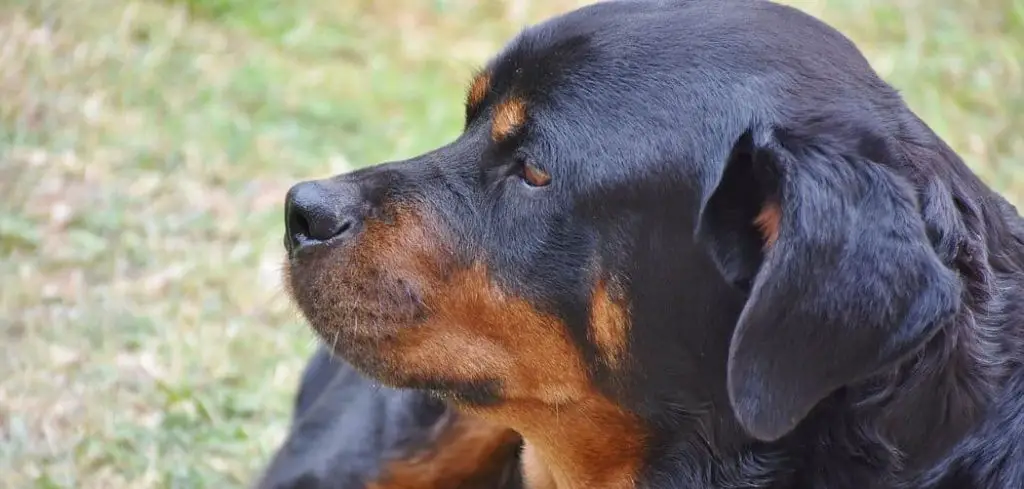When your dog is constipated and not eating, it’s often a sign that something is out of balance in their digestive system.
Constipation alone can cause discomfort and bloating, but when paired with appetite loss, it may indicate deeper issues such as dehydration, intestinal obstruction, pain, or illness.
Understanding what’s causing your dog to stop pooping and eating can help you act quickly—and potentially avoid a more serious condition.
Let’s dive into the common reasons and how you can support your pup through this uncomfortable episode.
Dog Constipated and Not Eating: Why It Happens
A dog constipated and not eating may be dealing with dehydration, dietary imbalances, ingestion of indigestible materials, intestinal blockages, pain, neurological issues, or underlying disease.
These causes can interfere with normal bowel movements and appetite by making the digestive process painful or inefficient, leading to buildup, bloating, nausea, and general discomfort.

Dog Constipated and Not Eating: Common Causes
1. Dehydration
Lack of water is one of the most common causes of constipation in dogs. Without enough moisture, stool becomes hard and difficult to pass, leading to strain and discomfort.
Signs of dehydration-related constipation include:
Dry, pebble-like stool or straining with no results
Dry nose or gums
Sunken eyes or reduced skin elasticity
Reluctance to eat or drink
As stool builds up, your dog may feel too uncomfortable or nauseated to eat. Chronic dehydration can also disrupt digestion more broadly, impacting nutrient absorption and energy levels.
Related: Dog vomiting and not eating (Causes and when to worry)
2. Low-Fiber or Poor-Quality Diet
Dogs that eat diets low in fiber or overly processed food may experience sluggish bowel movements. Fiber helps keep stool soft and supports motility in the digestive tract.
Common contributors:
Excessive treats or table scraps
High-protein, low-carb diets lacking roughage
Sudden dietary changes
The resulting constipation may cause bloating, gas, and a reluctance to eat. Dogs instinctively avoid food when digestion isn’t functioning well.
3. Ingestion of Foreign Objects
Dogs are curious by nature, and eating indigestible items like bones, toys, hair, or fabric can lead to intestinal impaction. This creates a partial or complete blockage in the intestines.
Signs include:
No bowel movements for over 24–48 hours
Vomiting or gagging
Lethargy and complete refusal to eat
Visible abdominal discomfort or swelling
This condition is serious and can become life-threatening. A blockage prevents stool from passing and may cut off blood flow to parts of the intestine. If your dog is showing these signs, contact your vet immediately.
4. Pain from Orthopedic or Anal Issues
Sometimes dogs avoid pooping because of pain—not digestive malfunction. This can be caused by:
Arthritis or hip dysplasia (difficulty squatting)
Anal gland impaction or abscesses
Spinal injuries or nerve-related pain
The result is postponed bowel movements, leading to constipation. Over time, stool becomes more difficult to pass, and appetite diminishes as the colon becomes distended.
Pain management and addressing the underlying cause often restore normal digestion.
5. Neurological Disorders
The muscles that move stool through the colon are controlled by nerves. If a dog suffers from neurological dysfunction, such as a spinal injury, degenerative disease, or trauma, constipation and poor appetite may follow.
Symptoms may include:
Lack of coordination
Weak back legs or dragging paws
Loss of anal tone or incontinence
General weakness or disinterest in food
These cases require veterinary evaluation, often including neurological exams or imaging.
6. Hormonal or Metabolic Conditions
Certain diseases affect how the body processes food and fluid—making constipation more likely. These include:
Hypothyroidism: Slows metabolism and gut movement
Diabetes mellitus: Alters hydration and nutrient absorption
Kidney disease: Causes chronic dehydration and nausea
In these cases, you may notice additional symptoms like increased thirst, changes in urination, dull coat, or fatigue. Blood tests are essential for diagnosis.
7. Medication Side Effects
Several medications can slow gastrointestinal motility as a side effect. These include:
Opioid pain relievers (e.g., tramadol)
Antihistamines
Diuretics
Certain sedatives or anti-anxiety drugs
If your dog started a new medication recently and is now constipated and avoiding food, contact your vet to discuss dosage or alternatives.
What to Do If Your Dog Is Constipated and Not Eating
If your dog isn’t showing signs of severe illness, you can try the following remedies at home:
Encourage hydration: Add water or low-sodium broth to meals
Offer a bland diet: Boiled chicken and pumpkin or plain canned pumpkin (not pie filling) can help soften stool
Go for a short walk: Gentle exercise stimulates digestion
Try a gentle belly massage: Focus on the lower abdomen in slow, circular motions
Offer ice cubes or water frequently if your dog is reluctant to drink
Avoid giving over-the-counter laxatives or enemas without veterinary approval, as some can be toxic to dogs.
When to Call or Visit Your Vet
Call your vet promptly if your dog:
Hasn’t pooped in more than 48 hours
Is vomiting, lethargic, or very bloated
Shows signs of pain or distress when trying to defecate
Stops eating and drinking entirely
Has blood in stool or vomit
Veterinary diagnostics may include abdominal x-rays, rectal exams, bloodwork, or ultrasound to determine the cause and rule out blockages or systemic disease.
Treatment may involve:
Fluid therapy
Prescription stool softeners
Enemas (administered at the clinic)
Dietary management
In severe cases, surgery
Related: Dog Belly Gurgling and Not Eating (When to worry)
Read more: Dog Lethargic and Not Eating (Causes and what it means)
Key Takeaway
When your dog is constipated and not eating, it’s often their way of signaling internal discomfort.
Whether due to dehydration, diet, pain, or a more serious underlying condition, taking prompt action can prevent complications and get your dog back to normal sooner.
With gentle care, hydration, and support from your veterinarian when needed, most dogs recover well.
Pay attention to your dog’s habits, and never hesitate to seek help if symptoms persist or worsen.
